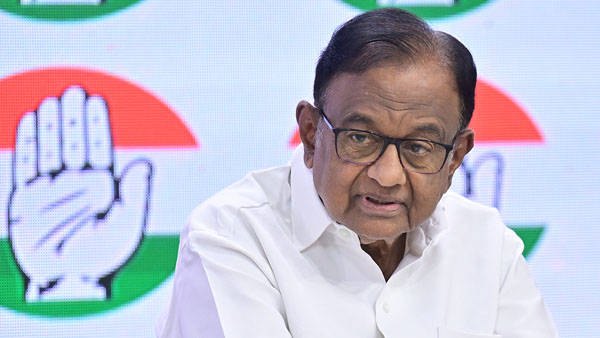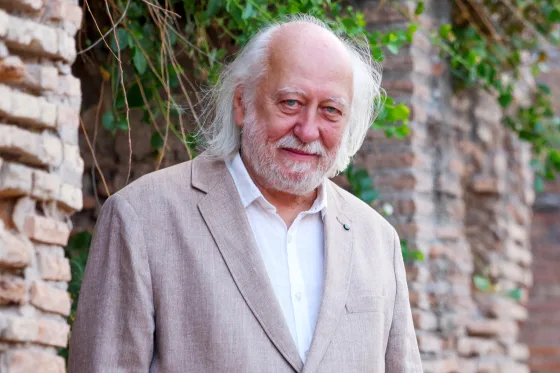By Manoranjana Gupta
P. Chidambaram has detonated a political bomb under his own party.
In a stunning revelation, the former Union Minister admitted that after the 26/11 Mumbai terror attacks, India’s hands were tied — not by lack of will or capacity, but by direct pressure from Washington. The UPA government, he conceded, stood down only because then US Secretary of State Condoleezza Rice told them to.
This admission has sent political tremors through the Congress High Command. It confirms what critics have long alleged — that under Congress rule, India’s sovereignty was repeatedly compromised for foreign approval. Far from being an isolated lapse, Chidambaram’s words reopen an uncomfortable ledger: Nehru pleading with Kennedy, Indira’s quiet deals during the Cold War, Rajiv’s bargain with Kissinger, and the UPA’s repeated submission to Washington. Each decade tells the same story — Congress traded India’s sovereignty for global applause.
Nehru: The Father of Non-Alignment, the Patron of Dependency
Jawaharlal Nehru’s foreign policy is celebrated in textbooks as the birth of the Non-Aligned Movement. But behind the lofty speeches at Bandung and the rhetoric of “strategic autonomy” lay a paradox: India leaned on foreign aid, loans, and approval to survive economically and militarily.
By the late 1950s, India was dependent on American PL-480 wheat imports and U.S. aid to plug gaps in food security. Nehru, who spoke of resisting superpower domination, wrote personal letters to American presidents appealing for assistance. During the 1962 war with China, he openly pleaded with John F. Kennedy for military help. India’s sovereignty, in those desperate moments, was bartered for survival.
The Nehruvian legacy set the template: Congress spoke the language of autonomy but practiced the politics of dependency.
Indira Gandhi: The Strongwoman Who Still Bent the Knee
Indira Gandhi is remembered as a leader of steel, the architect of the 1971 war victory, and the prime minister who made India a nuclear power. Yet, beneath that image was a deep compromise.
The Indo-Soviet Treaty of Peace, Friendship and Cooperation (1971) effectively placed India under Moscow’s strategic umbrella. It shielded India against U.S.–Pakistan–China collusion during the Bangladesh liberation, but at the cost of sovereign flexibility. India was compelled to toe the Soviet line in global forums, from Afghanistan to arms deals.
Even during the Emergency, when Indira throttled domestic freedoms, she sought validation abroad. Western approval mattered enough to soften policies. Her strength at home came packaged with dependence abroad.
Rajiv Gandhi: The Modernizer Who Opened Strategic Backdoors
Rajiv Gandhi’s premiership was pitched as India’s great leap into modernity — computers, telecom, and a youthful vision. But behind the modern face was a Cold War compromise.
Rajiv sought Washington’s favour, cultivating ties with the Reagan and Bush administrations. In conversations with U.S. diplomats and Henry Kissinger, he signalled India’s willingness to align more openly with American strategic thinking in Asia.
The Bofors scandal further weakened India’s credibility, making the government vulnerable to foreign pressure. Rajiv’s attempts to balance between Moscow and Washington exposed India’s strategic schizophrenia — a modernizing elite seeking Western approval even at the risk of policy compromise.
The UPA Years: Dependency in a Globalized Age
The UPA (2004–2014) represented India’s deeper integration into a globalized order. On paper, this was India’s rise — a booming economy, growing IT exports, and new partnerships. In practice, it was Congress’s submission to Washington’s diktats.
The Indo–U.S. Nuclear Deal was touted as historic, but it tethered India to a regime of inspections and conditionalities. Washington gained leverage over India’s strategic program, while Congress leaders boasted of America’s blessings.
Chidambaram’s admission after 26/11 only confirms the larger trend: when push came to shove, Congress bent. Instead of decisive retaliation against Pakistan — the state sponsor of terror — India meekly followed U.S. advice. National honour was outsourced to the goodwill of foreign capitals.
Even on economic issues, the UPA opened India to predatory global capital without sufficient safeguards. Policy paralysis, scams, and lobbying exposed how deeply international interests had penetrated governance.
26/11: The Night Sovereignty Was Abandoned
When Pakistani terrorists held Mumbai hostage in November 2008, the world watched in horror. India’s citizens expected a resolute response — military, diplomatic, or covert. Instead, what they got was timidity disguised as restraint.
Chidambaram’s confession rips the veil. India did not refrain from striking Pakistan out of calculation, but because Washington asked it not to. This was not restraint — it was capitulation. The Indian state, at its darkest hour, deferred its security to an external power.
For the families of 166 victims, this admission is a second betrayal. The first was the state’s inability to protect. The second is knowing that when justice could have been sought, leaders in Delhi chose foreign approval over national pride.
The Cost of Capitulation
Each compromise comes with a cost:
– Strategic Erosion: India’s ability to act as an independent power shrinks every time decisions are shaped abroad.
– Diplomatic Subservience: When foreign capitals dictate action, sovereignty becomes ornamental.
– Public Demoralization: Citizens lose faith when leaders bow to outsiders rather than stand for the nation.
– Structural Dependence: Loans, aid, foreign policy alignments create a cycle where sovereignty is bartered for survival or comfort.
This is the inheritance Congress leaves behind — a half-sovereign India.
Congress’s Defense: Realism or Weakness?
Predictably, Congress will argue that these were pragmatic choices: diplomacy is never black and white, foreign pressure is a reality, restraint avoids escalation.
But that defense collapses in the face of Chidambaram’s own words. When a senior leader admits that India acted (or failed to act) because foreign powers said so, it is not pragmatism — it is surrender.
Why This Matters Today
In 2025, India is a rising power in a multipolar world. It cannot afford the Congress template of dependency. If anything, the lesson is clear: sovereignty must never be traded for global applause.
The BJP has seized this moment to contrast its doctrine of self-reliance and muscular diplomacy with Congress’s history of capitulation. Whether one agrees with BJP’s methods or not, Chidambaram’s confession has given the ruling party its sharpest weapon yet.
Rahul Gandhi: The Heir Who Carries the Legacy of Compromise
If Chidambaram’s confession exposed Congress’s past compromises, Rahul Gandhi embodies how that legacy continues today. At moments when India is locked in tense confrontations with China, Rahul Gandhi has chosen to quietly visit Beijing. At a time when India is managing a delicate but hard-fought relationship with the United States, Rahul is a frequent traveler to American universities, lecturing against India and its Army, and echoing the very narratives that adversaries use to undermine the country.
Far from representing a new vision, Rahul Gandhi has become the symbol of a Congress tradition of appeasement and subservience. On foreign shores, he bad-mouths India, criticises its democratic institutions, and indulges in woke experiments in American campuses that do little more than reinforce Western scepticism about India’s rise. When the country is engaged in tough battles — whether diplomatic, economic, or military — Rahul seems more comfortable playing fiddle to foreign audiences than standing with his own people.
In doing so, Rahul Gandhi confirms what Chidambaram’s words already revealed: for Congress, sovereignty is not sacred. It is a negotiable asset, bartered for applause abroad and influence at home.
Conclusion: The Congress Legacy — A Ledger of Surrender
Chidambaram’s revelation is not a slip of the tongue. It is an admission that crystallizes decades of Congress politics — a party that treated sovereignty as negotiable, bartering it for aid, loans, or applause.
From Nehru to Manmohan Singh, Congress has followed a troubling pattern: when tested, it looked outward for validation rather than inward for resolve. 26/11 was the culmination — the night sovereignty was not asserted but abandoned.
India now faces a choice. It can either remain chained to that past of appeasement and dependency, or reclaim the future with clarity and confidence. Sovereignty is not a slogan; it is a sacred mandate. Congress compromised it. India must never let it be compromised again.




